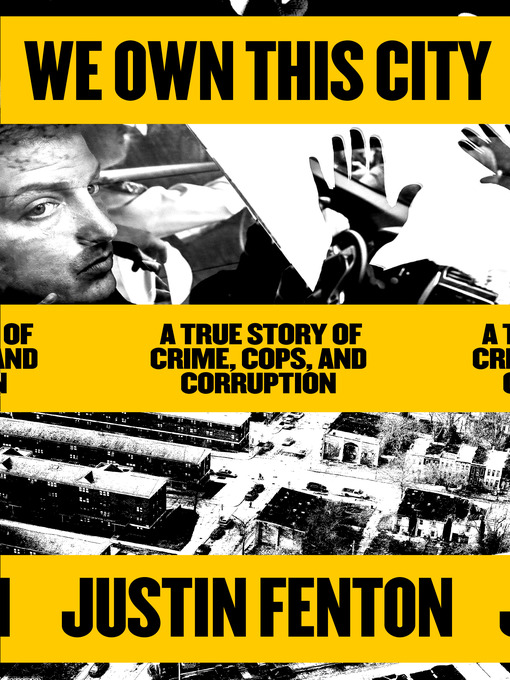
We Own This City
A True Story of Crime, Cops, and Corruption
کتاب های مرتبط
- اطلاعات
- نقد و بررسی
- دیدگاه کاربران
نقد و بررسی

Starred review from December 14, 2020
Baltimore Sun reporter Fenton, whose coverage of the Baltimore riots that followed the death of Freddie Gray led to a Pulitzer Prize nomination, debuts with a searing look at that city’s recent police corruption scandal. The Baltimore PD’s Gun Trace Task Force was created in 2007 to make the streets safer by clamping down on guns and drugs; instead, under the crooked leadership of Sgt. Wayne Jenkins, Fenton writes, the task force members became criminals themselves—committing robberies, dealing narcotics, engaging in overtime fraud, and planting or misappropriating evidence. People of color were stopped and harassed on false pretexts by task force members, fostering community distrust of the police at a time when Fenton believed an increase in violent crime meant that ethical policing was more needed than ever. Jenkins and his crew were federally indicted in 2017, and, subsequently, all seven members of the GTTF were convicted of crimes including racketeering, robbery, illegal searches and seizures, and drug dealing. Fenton’s detailed narrative makes the tragic consequences of the GTTF’s graft palpable. Fans of TV series such as Homicide: Life on the Street and The Wire based on journalist David Simon’s groundbreaking coverage of Baltimore will be engrossed. Agent: Rafe Sagalyn, ICM Partners.

January 1, 2021
When police officers are the criminals, they serve and protect themselves. When Freddie Gray died while in Baltimore Police custody in 2015, protests broke out in the streets, and Baltimore Sun crime reporter Fenton--who shared a Pulitzer for coverage of the events--was on the scene. Strangely, he fell under the protection of both Crips and Bloods, who worked under a truce that overlooked red and blue gang garb and instead focused on the Black of the victim. Certainly, according to the author's tenacious reporting, the Baltimore officers focused on Blackness, in a very negative way: Their Gun Trace Task Force broke into homes without warrants, searched Black people without probable cause, stole guns and money, and sold confiscated drugs. "While the police department leadership begged citizens to cooperate," writes Fenton, "some of its elite officers were running roughshod on Black men in poor neighborhoods, creating a free-fire zone for anyone seeking to exploit them." The worst of the bunch was a sergeant who devolved from model Marine to utterly corrupt cop. He partnered with a cocaine dealer to identify other dealers, seize their wares, and sell them; reportedly, that sergeant had squirreled away at least half a million dollars, having done things like broken into a dealer's car and "stolen between $12,000 and $19,000." Before getting greedy, a core group of officers--most now serving prison terms thanks to an FBI investigation that Fenton tracks almost in real time--preferred to skim money off the top during seizures. Meanwhile, the GTTF was lauded for its results, which were murky at best. "Despite police and prosecutors' stated priority of holding people caught carrying guns accountable," writes the author, "officials would later acknowledge that no one was circling back to check or improve the outcomes." Fenton's fast-paced narrative, perfect for fans of The Wire, delivers a satisfying resolution, though it remains to be seen whether the department will truly clean up under new management, for which readers must stay tuned. A harrowing study in true crime, most of it committed by men with badges.
COPYRIGHT(2021) Kirkus Reviews, ALL RIGHTS RESERVED.

























دیدگاه کاربران